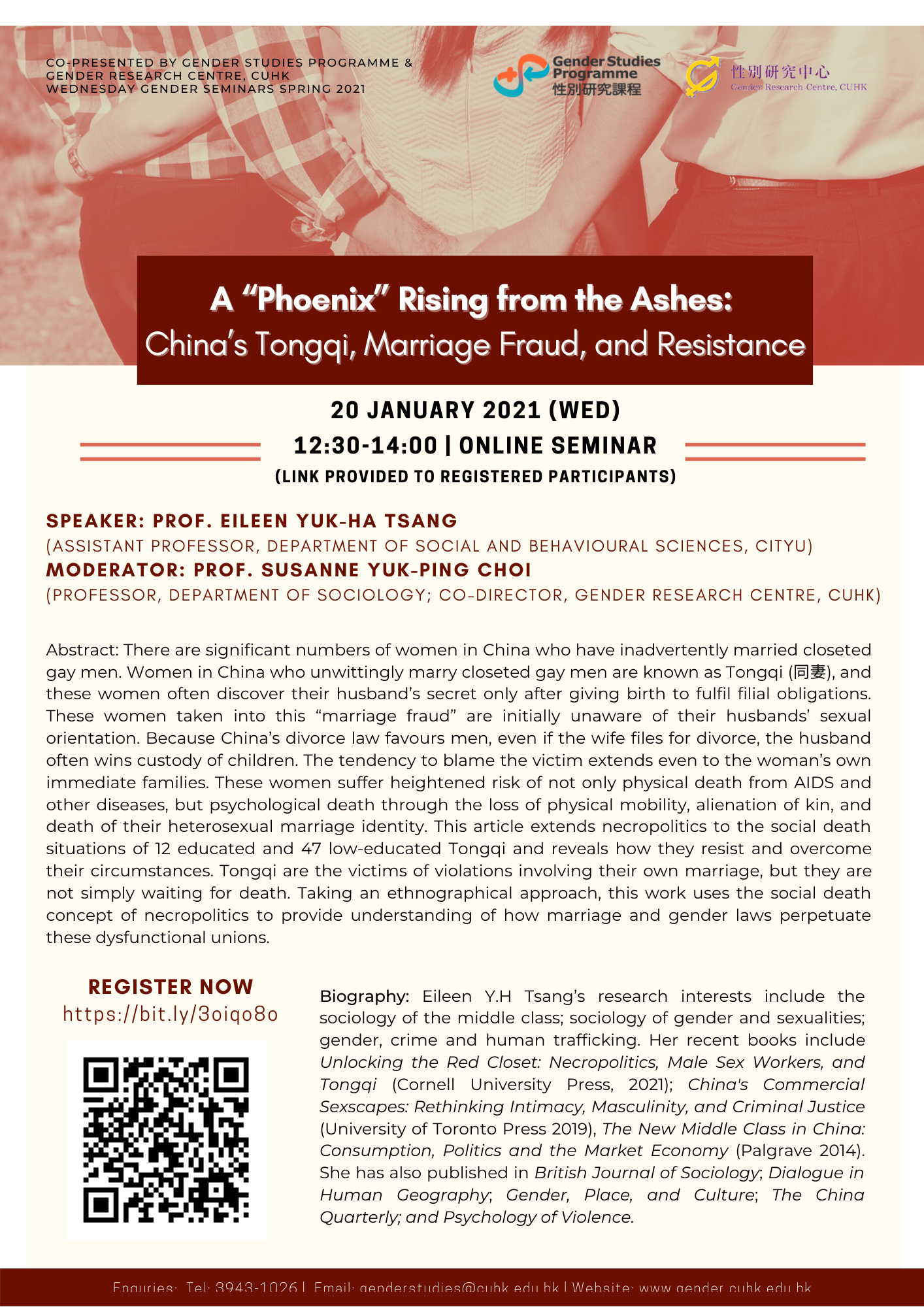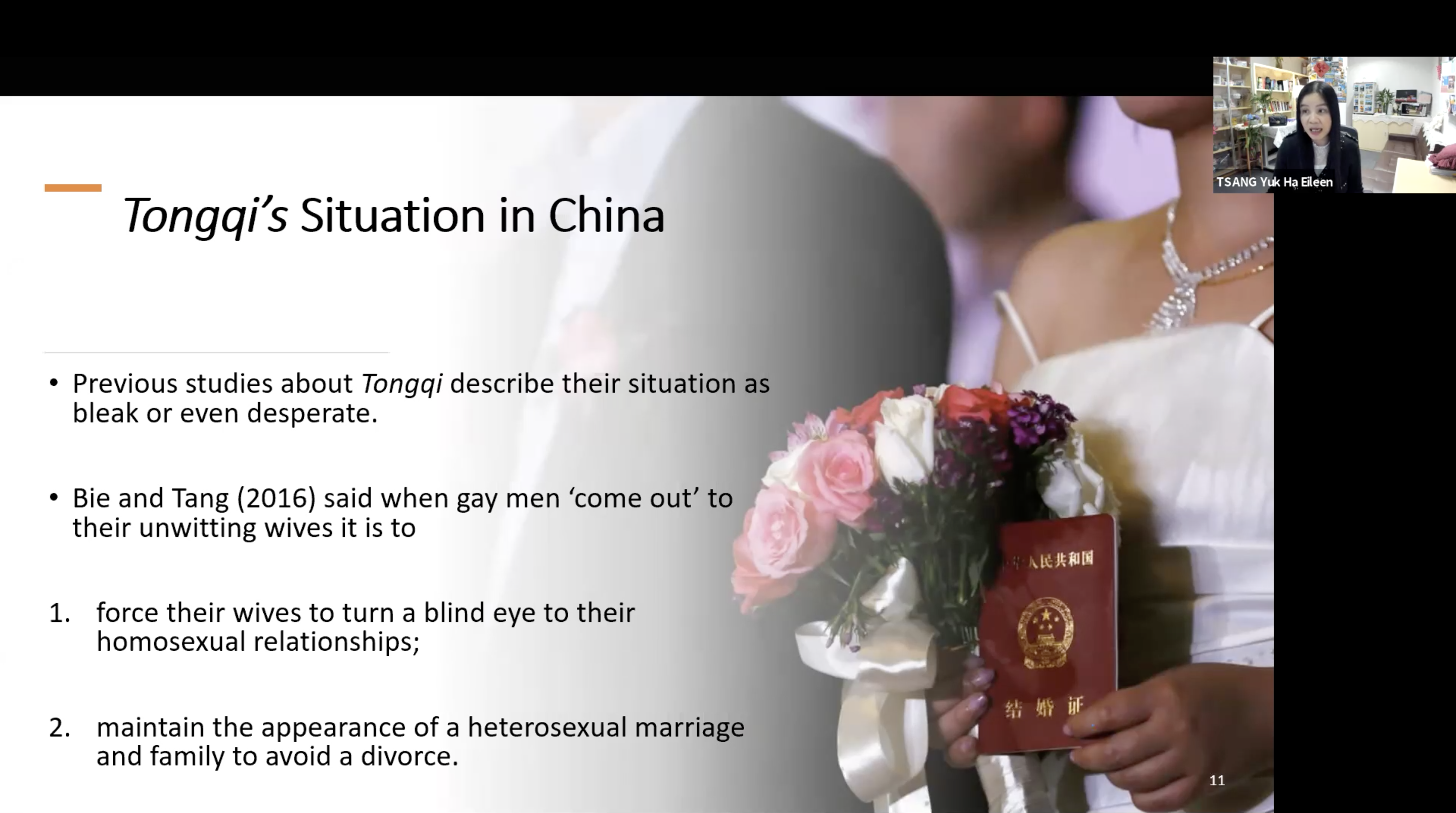At the Wednesday Gender Seminar held on January 20, Dr. Eileen Yuk-ha Tsang, Assistant Professor from the Department of Social and Behavioural Sciences at the City University of Hong Kong, shared her research on Tongqi in China conducted between 2015 and 2019. Tongqi refers to women who have unknowingly married closeted gay men and often discovered their husband’s secret after giving birth to fulfil filial piety. Dr. Tsang extended the concept of necropolitics and used ethnographic methods to uncover the social death situation of 59 Tongqi in Tianjin and Northeast China, and how they resist the circumstances with an agency.
Dr. Tsang first introduced her conceptual framework based on Achille Mbembe’s theory of necropolitics. She expanded the concept, which refers to the situation of underprivileged groups waiting for death, due to the denial of legal support, cultural recognition and basic human rights, to explain the social death situation that these Tongqi live in. She pointed out that, however, there is still room for Tongqi to exercise their agency, as they seek divorce, medical treatment, help from NGOs and the Internet to survive and resist the circumstances.
In terms of getting a divorce, Dr. Tsang discovered that a majority of the Tongqi with a low level of education did not proceed to divorce and maintain the status quo because they are jobless, lack of money and constrained by the social stigma of divorce. On the contrary, Tongqi with more education attempted to either settle their divorce out of court or go to trial. While those seeking an out-of-court divorce face challenges of weaker social bonding, lower social status and less power, those who go to court experience frustration because the divorce law in China favours men in terms of custody of children, settlement of property and so on. However, battling for a divorce is a way for Tongqi to obtain dignity, to fight for justice and to escape the death of their heterosexual marriage identity in order to start a new chapter in life.
Dr. Tsang also talked about Tongqi who got infected with AIDS have been proactively seeking help from NGOs and the internet to demonstrate their agency. Despite feeling depressed and hopeless, the women look for medical treatment and try to overcome the hardships with the care and encouragement from their children and parents. Moreover, Tongqi approach NGOs for professional and legal advice. They also join different social media groups to get support from each other.
With her search, Dr. Tsang intends to provide insights for policymakers and NGOs to understand and support Tongqi, raise the consciousness of how flawed marriage law in China affect their lives and reduce stigmatisation of Tongqi and homosexual men who enter marriage to fulfil filial piety.
— Written by LEE Man Ting and XU Ran, MA students of Gender Studies





A
A
A
Contact Us